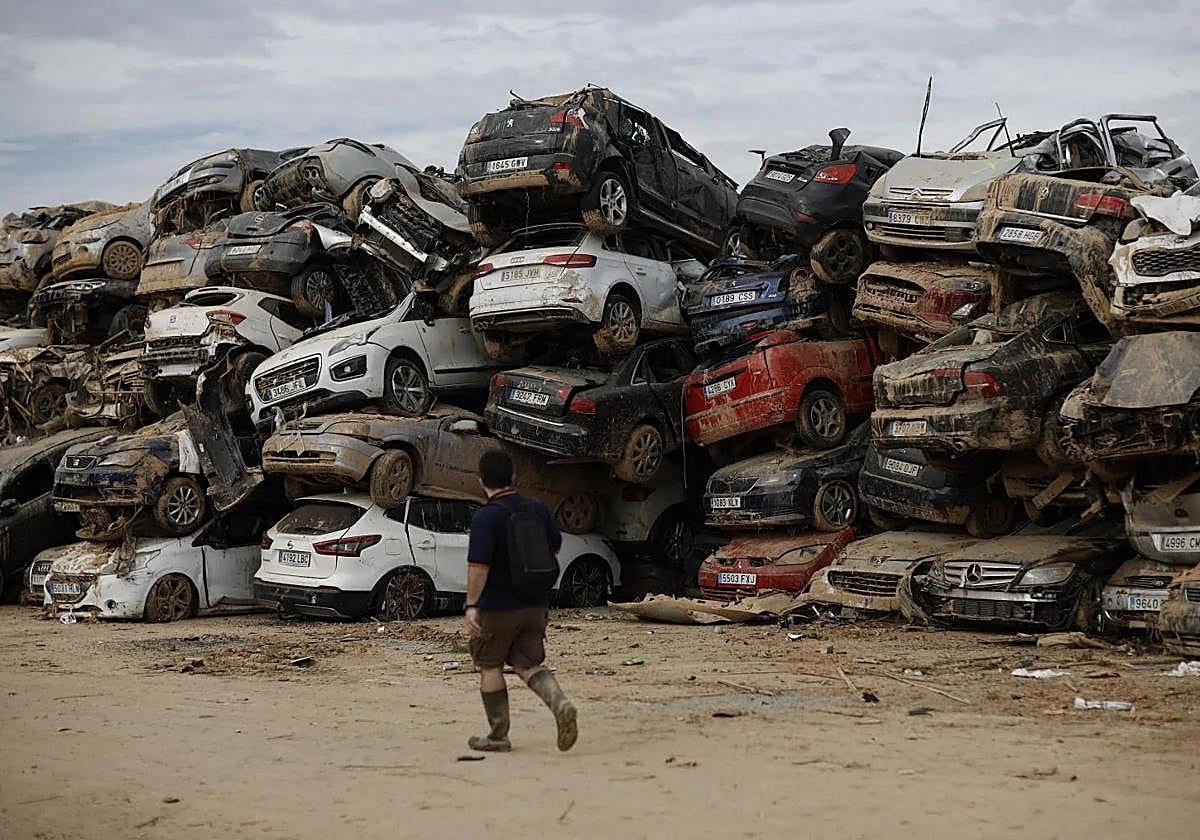Bank of Spain estimates that 'Dana' storms will impact GDP by 800 million euros
Regarding claims, the Consorcio state insurance compensation scheme has stated that there are already close to 200,000 cases, mainly for vehicles and homes
The Bank of Spain has made public its first analysis of the economic impact of the Dana storms and estimates that it will be "limited" due to the specific scope of the disaster to the country as a whole and the "appropriate" measures taken by central government in terms of aid and taxation. Such were the words stated by the bank's governor, José Luis Escrivá, during his speech at the conference organised by APIE on Wednesday this week in Madrid.
Turning to specifics, the nation's central bank estimates that the impact of the Dana weather events will be two tenths of a percentage point on the quarterly growth rate of gross domestic product (GDP) in the fourth quarter of 2024. Taking into account the GDP of the third quarter - close to 400 billion euros - an impact of 0.2 percentage points means 800 million euros less are expected in GDP for the fourth quarter.

Zoom

On GDP for the year as a whole, Escrivá revealed that this impact will be taken into account when drawing up their forecasts - a task they are currently working on - for the end of 2024, but that other positive data observed in recent weeks was "pulling in the opposite direction." He said: "I don't want to get ahead of myself, but it is perfectly possible that one thing will be neutralised by the other." In other words, the impact of the Dana disaster on GDP in 2024 may actually have a null effect at the macroeconomic level.
Moreover, in the long term, the impact on growth will even be on the upside, contrary to expectations. The return to normality will mean that investments will start to be made in the affected areas. "The negative effect on activity will be offset by new investments to restore the material damage," said the governor, emphasising that the effect that emerges after a year is limited only to the first quarter of the impact.
In terms of inflation, the Bank of Spain forecasts an impact of 0.15 percentage points on the CPI (consumer price index) "in the long term." In other words, Escrivá wanted to stress that the impact on the economy "is significant but limited."
Taking the 78 municipalities affected, the area accounts for 2% of the economy, with a greater weight of the industrial sector in that area - around 3%. "We are talking about 2% of the population, 2% of employment and 3% when we talk about the industrial sector," explained the governor. He further pointed out that, as most of the places affected are dormitory towns, the bank estimates that around half a million people have mortgages in the area, from a population of one million, and 150,000 are protected-payment mortgages.
0% ICO guarantees
To help all these affected businesses and families get back to normal, the Official Credit Institute (ICO) has launched a line of guarantees that, for the first time in its history, will apply to not only businesses but also to families at 0% interest. The president of the ICO, Manuel Illueca, explained at the APIE conference that the main objective of this aid is that "the money arrives as soon as possible" so the people will be able to return to normality as soon as possible.
After reminding conference attendees that the ICO's guarantees during and following the pandemic did not have 0% interest, Illueca stated that families will have an advance on the aid they request at 0% for the first three months and at 2.5% interest for the following three months. "If the aid grant is completed within six months, the family will have paid only 0.8% interest for having the aid in their bank account tomorrow; it is a symbolic cost," explained the president of the ICO.
15,000 cars identified to date
Regarding insurance claims, the president of the Consorcio, Spain's state insurance compensation scheme, José Antonio Fernández de Pinto, stated that there are already close to 200,000 cases, mainly for vehicles and homes. In the case of cars, the Consorcio's experts have already identified 15,000 that were rounded up and moved to over 60 places set aside for insurance assessments. More than 85% have been classified as write-offs.
For their owners, the Consorcio will give them their appraised value of the vehicle plus an extra 20% that has been guaranteed by central government for this particular situation. In addition, De Pinto said that second-hand cars in the area are now likely to rise in price due to the demand for replacement vehicles, as about 100,000 vehicles have been lost.

